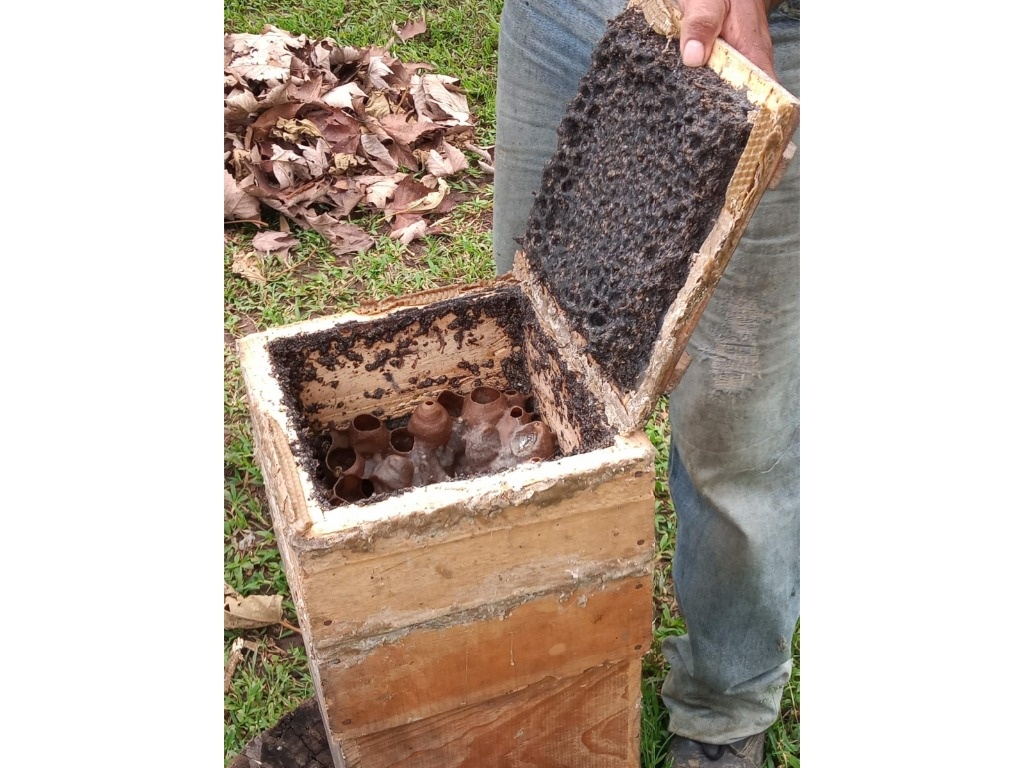Bacteria from the digestive tract of native bees could improve human health due to their anti-inflammatory and anti-aging free radical properties. They could also help cure themselves and other varieties from mite infections and viral diseases.
In interview about the project Characterization of lactic bacteria isolated from the gastrointestinal tract of native bees, The specialist Guiomar Melgar Lalanne said that the melipona variety in Veracruz It is essential for the conservation of the environmental environment, since it is responsible for the pollination of cloud forests and a good part of the tropical ecosystems in that entity.
.
The scientist, from the Biomedical Research Center of the Universidad Veracruzana, however, regretted that despite the importance of these insects, the use of pesticides and the intense introduction of Africanized specimens have put them in danger of disappearing.
To try to reverse this danger, Melgar-Lalanne, together with other academics, such as Dolores Hernández-Rodríguez, Humberto Hernández-Sánchez and Amaury Andrade Velásquez, undertook research with honey producers from native bees in Teocelo, municipality of the central area of Veracruz.
“It was in 2020 – when the highest point of Covid-19 infections was – when my students and I felt the need to start work with great social impact, and that is how we dedicated ourselves to studying the cloud forest region. ”.
Melgar Lalanne added that they analyzed the digestive tract of the species of scaptotrigona Mexican and pectoralis, in order to detect beneficial microorganisms (microbiota) that protect them from different diseases.
They identify two microorganisms
Within the microorganisms they identified the Weissella sp y Fructobacillus sp, which can be beneficial to humans due to their anti-inflammatory and anti-aging properties of free radicals, while among bees they can combat mite infections and viral diseases.
After this first discovery, now We are encapsulating and studying these bacteria to find out if they also work against pesticides, such as glyphosate, so that this knowledge, translated into technology, can be transferred to producers so that they can counteract the decline in the melipona population.
.
According to Melgar Lalanne, the results of this research are of great importance for environmental balance, since meliponiculturists warn that in recent years the presence of pesticides such as glyphosate in the region coincides with the queen bees leaving the hive, with what populations of meliponas die or with which they remove the larvae from their hives.
As we find alternatives to conserve native bees and increase their presence, we will be contributing to the conservation of forests, agricultural fields and people.
The scientist added that there are previous studies that indicate that some bacteria could digest certain pesticides and reduce damage to bees.
It is very interesting to observe how some researchers look for ways to kill insects, while others want to save them.
he commented.
Native bees are small and stingless and have an important role in ecology. It is estimated that there are more than 600 species in the world, 46 of which are in Mexico. In the country, Yucatán is the entity with the largest population of meliponas, and in second place is Veracruz, where there are 24 different species identified, although it is estimated that there could be more unregistered varieties.
#analyze #bee #bacteria #improve #human #health
– 2024-05-10 16:08:31


